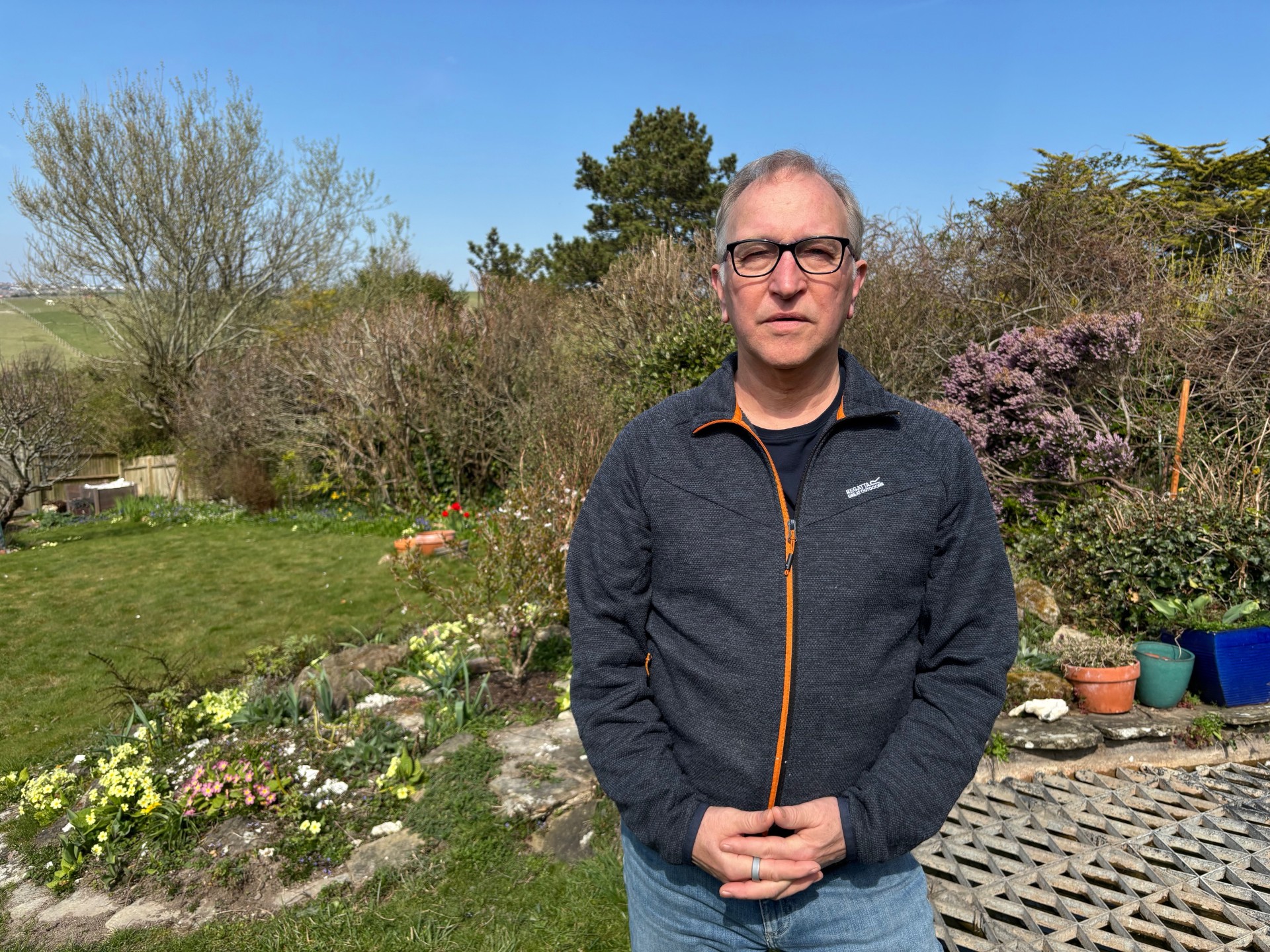A new AI test can pick out which men with high-risk prostate cancer that has not spread will require life-extending drug abiraterone.
Scientists from The Institute of Cancer Research, London, and University College London (UCL) showed that for approximately 25 per cent of men with this type of cancer, abiraterone almost halves the risk of death.
In research presented at the American Society of Clinical Oncology (ASCO) Annual Meeting, and published simultaneously in the journal The Lancet Digital Health, the team analysed tumour samples from men who took part in the STAMPEDE trial. The trial found that abiraterone alongside standard hormone therapy helps this group of men live longer. However, since many men in this part of the trial did well with standard therapy, there is a need to better select those with most chance of benefit.
Calls for NHS England to review funding
Experts say that because fewer men than previously thought will need the drug, NHS England should review the decision not to fund the treatment for this group of men.
Abiraterone, discovered in the UK at The Institute of Cancer Research (ICR), works by inhibiting the production of testosterone in all tissues throughout the body, including in the tumour.
It is approved for use on the NHS in England for patients with advanced prostate cancer that has come back and spread to other parts of the body, but not for the 8,400 men per year with newly-diagnosed high-risk prostate cancer that has not yet spread. However, it has been available for men with this indication in Scotland and Wales for two years.
Studying samples from the STAMPEDE trial
The new test, developed by Artera Inc., uses artificial intelligence to study images of tumour samples and pick out features that are invisible to the human eye.
The researchers used the test on biopsy images from more than 1,000 men who took part in the STAMPEDE trial, coordinated by the Medical Research Council (MRC) Clinical Trials Unit at UCL and funded by Cancer Research UK.
This current research received funding from Artera Inc., UK MRC and Prostate Cancer UK.
Abiraterone halved risk of death
Patients were given a score – either biomarker-positive or -negative – which was compared to their outcomes.
For patients with biomarker-positive tumours, abiraterone cut the risk of death after five years from 17 per cent to 9 per cent.
For those with biomarker-negative tumours, risk of death without abiraterone was 7 per cent, which was cut to 4 per cent with abiraterone – a difference that was not statistically or clinically significant. These men would therefore benefit from standard therapy alone and could avoid unnecessary treatment – which comes with additional side effects.
'Postcode lottery'
Professor Nick James, Professor of Prostate and Bladder Cancer Research at The Institute of Cancer Research, London, and Consultant Clinical Oncologist at The Royal Marsden NHS Foundation Trust, is Chief Investigator of STAMPEDE and co-led this current research. He said:
“Abiraterone has already hugely improved the outlook for hundreds of thousands of men with advanced prostate cancer. We know that for many men with cancer that has not yet spread, it can also have spectacular results. But it does come with side effects and requires additional monitoring for potential issues with high blood pressure or liver abnormalities. It can also slightly increase the risk of diabetes and heart attacks, so knowing who is most likely to benefit is very valuable.
“This research shows that we can pick out the people who will respond best to abiraterone, and those who will do well from standard treatment alone – hormone therapy and radiotherapy.
“Access to this life-extending drug is currently a postcode lottery – with those living in Scotland and Wales able to receive the treatment for free. The NHS in England has previously decided that it would be too expensive to offer the drug. Since the patent expired in 2022, abiraterone costs just £77 per pack – compared with the thousands of pounds that new drugs cost. Previous research by my team has shown that preventing cancer relapses for these men would save more money than the drug costs to purchase. I truly hope that this new research – showing precisely who needs the drug to live well for longer – will lead to NHS England reviewing their decision not to fund abiraterone for high-risk prostate cancer that has not spread.”
'Abiraterone has been a game changer'
Professor Kristian Helin, Chief Executive of The Institute of Cancer Research, said:
“Abiraterone has been a game changer for treatment of prostate cancer, and I’m proud of the ICR’s role in discovering and testing this drug which has extended the lives of so many men.
“Alongside our mission to find smarter, kinder treatments, we must ensure we are matching the right drugs to the right patients. This research, using artificial intelligence, provides an innovative route to testing prostate cancer patients to determine their treatment. I hope that this can be implemented so that all men with prostate cancer who will benefit from abiraterone can do so.”
Study co-leader Professor Gert Attard, at the UCL Cancer Institute said:
“The natural history of advanced and aggressive prostate cancer is highly variable and now with better treatments, the risk of cancer relapse can be significantly reduced. This study shows, in a very large cohort of patients, that novel algorithms can be used to extract information from routinely available pathology slides to tailor these treatments to specific patients and minimise over treatment whilst maximising the chance of cure."
'Urgent call for abiraterone to be made available'
Dr Matthew Hobbs, Director of Research at Prostate Cancer UK, said:
"STAMPEDE has driven huge improvements in prostate cancer treatment over the past decade. But we recognised that the samples and data from men in the trial represented an untapped resource and a way to deliver the sort of precision treatment we have seen benefiting patients with other cancers for years. To unlock that potential, Prostate Cancer UK, in partnership with Movember, awarded £1.4m to lead the way in getting a more precise understanding of prostate cancer, including by using AI tools. Today's results show that our strategic investment is now delivering exactly what we were aiming for: tools that identify men most likely to benefit from a treatment.
"Prostate Cancer UK has been calling on the UK Government to approve this life-saving, cost-effective drug for over two years. These exciting results suggest a way to make this an even more cost-effective approach, using this revolutionary test. We therefore echo the researchers’ urgent call for abiraterone to be made available to those men whose lives it can save – men who, thanks to this research, we can now identify more precisely than ever before.”
Timothy Showalter, Chief Medical Officer of Artera, said:
“This study reinforces our commitment to the rigorous clinical validation of the ArteraAI Prostate Test and our broader MMAI platform. It reflects our mission to empower clinicians and patients with personalized, actionable insights that support confident, shared decision-making in prostate cancer care.”
Patients paying thousands for their treatment
Giles Turner, 64, who lives in Brighton, was diagnosed with prostate cancer in March 2023. He has been taking abiraterone for almost two years and has spent £20,000 on his treatment so far.
Giles said:
‘This is great research and adds even more reason for NHS England to start funding this treatment now. I find it very difficult to come to terms with having to pay for this treatment whereas if I was with NHS in Scotland or Wales I would not. Even more importantly are the thousands of men in England who are missing out on this cheap, life-saving and cost-saving drug. Action must be taken by NHS England and DHSC right now.’
'Alarmed to learn the drug was not available in England'
Peter Laing, who worked as a CEO in the Biotech Industry, was diagnosed in November 2024, with stage 2/3b high risk prostate cancer. He said:
"Because of my experience in drug development I worked out that abiraterone was the best drug for my stage of disease, and that to receive it later (should metastatic disease emerge) would be a case of closing the door after the horse had bolted.
"I was then alarmed to learn that the drug was not available in England on the NHS despite being licensed for use in Scotland for two years. As an inventor, I was mortified to think that a drug invented in England, should be so readily obtainable elsewhere but not here, except under private prescription.
"Knowing that abiraterone was cheap and off-patent, I sought the drug under private prescription and eventually I was able to obtain it. I have been on the drug for nearly nine weeks."

